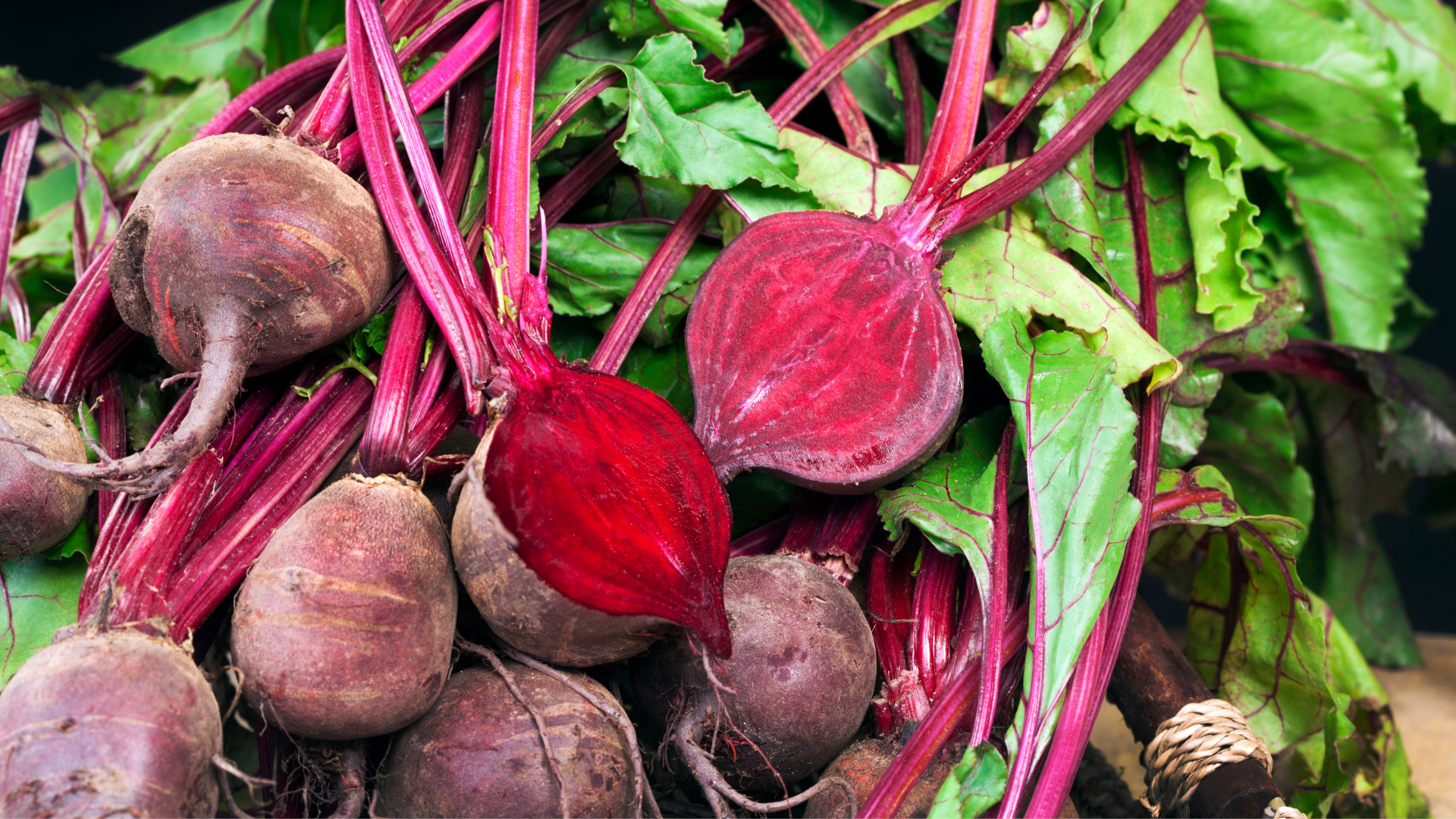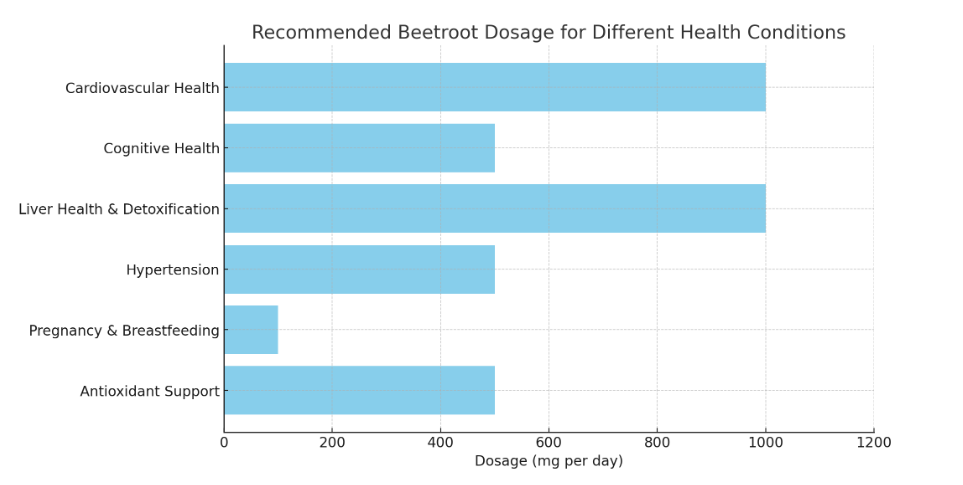
Beetroot, scientifically known as Beta Vulgaris, is a nutrient-dense root vegetable with a rich history dating back to ancient civilizations. The Babylonians and Romans used beets for medicinal purposes, treating fevers, constipation, and skin conditions. Initially, the leaves of the beet plant were more commonly used, but the root eventually became a staple in diets.
During the Middle Ages in Europe, beetroot became essential, especially during food shortages. In the 19th century, it played a significant role in the sugar beet industry, providing an alternative source of sugar to sugarcane. Today, beetroot is enjoyed in various forms fresh, pickled, roasted, juiced, and is used as a natural food dye, with its extract featured in health supplements.
As a taproot, beetroot grows underground as a thick, bulbous root, with large, dark green, nutrient-packed leaves. The root typically boasts deep red or purple hues, attributed to betalains, powerful antioxidants that contribute to its health benefits.
Nutritionally, beetroot is a powerhouse, rich in vitamins and minerals. It provides vitamin C for immune function and skin health, folate (vitamin B9) for red blood cell formation and DNA synthesis, and essential minerals like potassium for blood pressure regulation and manganese for bone health. Additionally, it contains moderate amounts of iron, crucial for preventing anemia.
The unique betalains in beetroot help reduce inflammation and oxidative stress, lowering the risk of chronic diseases. Moreover, beetroot is an excellent source of dietary fiber, supporting digestion and promoting a healthy gut microbiome.
Beetroot (beta vulgaris) is present in Miduty Liver Detox Supplement along with other potent ingredients like NAC (N-acetyl cysteine), Milk Thistle, and Dandelion within the range of 50 mg per serving (1 tablet).
Miduty Liver Detox supplement has 30 servings per container with the health experts recommending consumption of 2 capsules per day-one after breakfast and one after lunch with water.
Fortunately, with Miduty Liver Detox capsules with the inclusion of Beetroot, you can begin to reverse these health issues and reclaim your vitality.
Beetroot is highly valued in liver detox supplements due to its rich concentration of antioxidants, particularly betalains, which support liver function by helping to neutralize toxins and reduce inflammation.
| Uses & Benefits |
Description |
|
Improves Heart Health |
Beetroot positively impacts cardiovascular health, primarily due to its high nitrate content. [1] Nitrates are converted into nitric oxide, which relaxes and dilates blood vessels, enhancing blood flow and lowering blood pressure. Studies have shown that beetroot consumption can reduce both systolic and diastolic blood pressure within hours, making it beneficial for individuals with hypertension. This vasodilation helps decrease strain on the heart, lowering the risk of heart attack, stroke, and other cardiovascular diseases, including coronary artery disease and heart failure.[2] |
|
Aids in Detoxification |
Beetroot supports natural detoxification, particularly in the liver, which is vital for removing toxins from the body. Rich in betaine, beetroot protects liver cells and aids in their regeneration [3], enhancing the liver's ability to process fats and eliminate harmful substances. Its detoxifying properties make it a popular choice in detox diets and liver cleanse supplements, as it stimulates liver enzymes and improves bile flow, promoting better fat digestion and waste elimination. |
|
Supports Brain Health |
Beetroot's nitrates benefit cognitive function, especially in older adults, by promoting blood flow to the brain. Enhanced brain oxygenation supports better memory, mental clarity, and focus. Studies suggest beetroot may help prevent cognitive decline and reduce the risk of Alzheimer's and dementia [4] by increasing blood flow to the frontal lobe, which is involved in memory and decision-making. [5] This boost in circulation can enhance concentration and mental performance, making beetroot a valuable addition for those looking to sharpen cognitive abilities. |
|
Anti-Inflammatory Properties |
Chronic inflammation is linked to conditions like arthritis, heart disease, and cancer. Beetroot's antioxidant pigments, betalains, have potent anti-inflammatory effects that help neutralize free radicals and suppress inflammation, benefiting those with rheumatoid arthritis, asthma, and IBD. Additionally, beetroot's anti-inflammatory properties aid in preventing metabolic syndrome, and reducing risks of heart disease, stroke, and type 2 diabetes [6] by helping protect against insulin resistance and related metabolic issues. |
|
Fights Anemia and Supports Blood Health |
Beetroot is a rich source of iron, making it helpful in preventing and treating iron deficiency anemia by supporting hemoglobin production for oxygen transport. Its especially beneficial for those at higher risk, like vegetarians, pregnant women, and individuals with heavy menstrual periods. Additionally, beetroot contains folate (vitamin B9), essential for red blood cell formation and DNA production [7], which is crucial during pregnancy to prevent neural tube defects. |
|
Promotes Digestive Health |
Beetroot's high fiber content is beneficial for the digestive system, supporting regular bowel movements and promoting a healthy gut microbiome. Beetroot contains prebiotic fiber, which serves as food for beneficial gut bacteria. A healthy gut microbiome is essential for digestive health and has been linked to improved immune function and mental well-being. [8] By supporting bowel regularity and gut health, beetroot may help reduce digestive disorders, such as constipation, irritable bowel syndrome (IBS), and inflammatory bowel disease (IBD). The fiber in beetroot aids in keeping the digestive tract clean and supports a balanced gut environment, lowering the risk of colon-related diseases. [9] |
|
Supports Skin Health |
The antioxidants in beetroot, particularly betalains and polyphenols, protect the skin from oxidative stress caused by free radicals, which can accelerate the aging process. [10] These compounds help reduce the appearance of wrinkles, fine lines, and other signs of premature aging. Vitamin C in beetroot promotes collagen synthesis, which is essential for maintaining skin elasticity and firmness. By increasing collagen levels, beetroot helps keep the skin smooth, reducing sagging and the development of wrinkles. Beetroot's anti-inflammatory and detoxifying properties can help prevent acne and skin breakouts. By improving liver function and aiding in toxin elimination, beetroot supports clearer skin from within. The natural pigments in beetroot can improve the skin's appearance, making the complexion brighter, reducing pigmentation, and blemishes, and more even. |
|
Supports Weight Management |
Beetroot is nutrient-dense and ideal for weight management, offering fiber, vitamins, and minerals that enhance satiety and help regulate blood sugar. Its fiber slows digestion, while antioxidants and nitrates boost metabolism and promote fat oxidation during exercise. Additionally, beetroot supports liver function and detoxification, indirectly aiding weight loss efforts. |
|
Enhances Exercise Performance |
Beetroot is valued by athletes for its performance-enhancing nitrates, which boost mitochondrial efficiency, improving energy production and endurance. Studies show that beetroot intake before intense exercise extends time to exhaustion, benefiting endurance athletes like runners, swimmers and cyclists. [11] Its anti-inflammatory and antioxidant properties, especially betalains, aid in post-exercise recovery by reducing muscle soreness and oxidative stress. |

The adequate dosage of beetroot can vary depending on age, health status, and specific needs.
General Adult Dosage: For antioxidant support and well-being, doses of 500 mg are common in multivitamins or daily supplements that include beetroot as one of the ingredients.
Pregnancy and Breastfeeding: It's often recommended to stick to dietary amounts or low doses of 100-300 mg per day or as advised by a healthcare professional.
Specific Health Conditions -
Beetroot is often recommended to improve certain health conditions, and the dosage may need to be adjusted based on individual circumstances.
Hypertension: Studies suggest a daily dosage of around 500 mg of beetroot powder or extract may help lower blood pressure due to its high nitrate content.
Liver Health and Detoxification: For supporting liver function, a dosage of 500-1,000 mg of beetroot extract daily may assist in detoxification and improve liver enzyme levels.
Cognitive Health: For brain health and boosting blood flow to the brain, around 500 mg of beetroot extract may be beneficial, especially in older adults.
For Cardiovascular Health: Clinical studies suggest doses of 500 mg to 1,000 mg of beetroot extract or powder per day may be effective in supporting blood pressure management and improving circulation.
Avoid Taking Before Bed: Beetroot has energizing properties due to its nitrates, so it's generally better to avoid taking it in the evening or right before bed as it may interfere with sleep.
With or Without Food: Beetroot supplements can be taken with or without food, but taking them with a meal may help avoid any potential digestive discomfort.
For Cardiovascular Health: Taking beetroot in the morning can help regulate blood pressure throughout the day, as the nitrates improve blood flow and reduce blood pressure over time. Some people may prefer early afternoon to avoid any potential interference with sleep (due to its energizing effects).
For Cognitive Health: To support brain health and boost blood flow to the brain, it's recommended to take beetroot in the morning or early afternoon to benefit from improved cognitive function throughout the day.
For Detox and Liver Health: Taking beetroot in the morning, particularly before meals, can stimulate liver detoxification processes and enhance digestion. This timing helps maximize its cleansing benefits.
Beeturia: One of the most common side effects of consuming beetroot is beeturia, which causes your urine or stool to appear red or pink. Beeturia is harmless and simply a result of the pigments in beets (betacyanins). However, it may be confused with blood in the urine or stool, so it's important to be aware of this effect.
Kidney Stones: Individuals prone to kidney stones or with a history of calcium oxalate stones should moderate their beetroot intake or consult a healthcare provider before consuming beetroot.
Low Blood Pressure: Since beetroot is rich in nitrates, which help lower blood pressure, it can potentially lead to hypotension (abnormally low blood pressure) in those already taking blood pressure medications. Its better to consuklt a healthcare expert before consumption.
Digestive Upset: Individuals with sensitive stomachs or IBS (irritable bowel syndrome) may experience discomfort from beetroot's fiber content or its fermentation in the gut.
Beetroot can have a mild diuretic effect, which may lead to more frequent urination. Ensure you're drinking plenty of water, especially if you consume beetroot juice regularly.
For better absorption and enhanced benefits, pair beetroot with foods rich in healthy fats (like avocado, nuts, or olive oil). This can improve the absorption of fat-soluble nutrients in beetroot.
Beetroot is more than just a vibrant root vegetable; it's a powerhouse of nutrients that can greatly improve heart, liver, brain, and skin health. Its high levels of nitrates, antioxidants like betalains, and essential vitamins and minerals make it an ideal addition to a healthy diet or supplement regimen.
From reducing blood pressure to enhancing exercise performance, beetroot offers a wide range of health benefits. However, as with any supplement, it's essential to consider your individual health needs and consult a healthcare provider, especially if you have any preexisting conditions.
